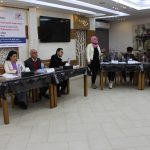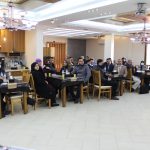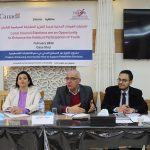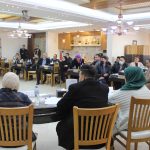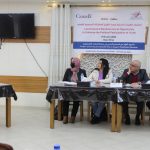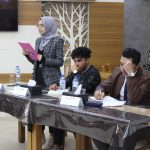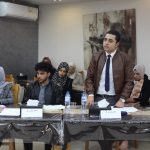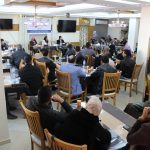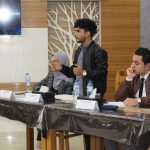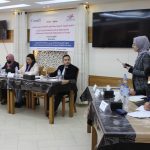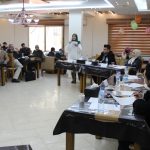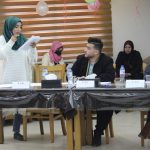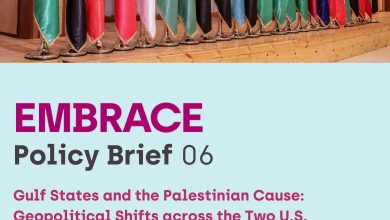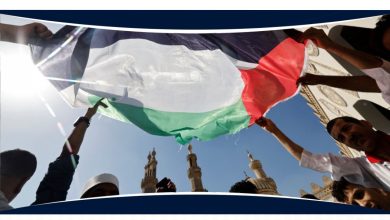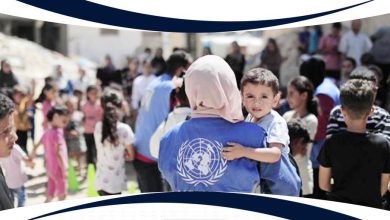“Local council elections are an opportunity to enhance the political participation of youth” a debate carried out by Pal-Think
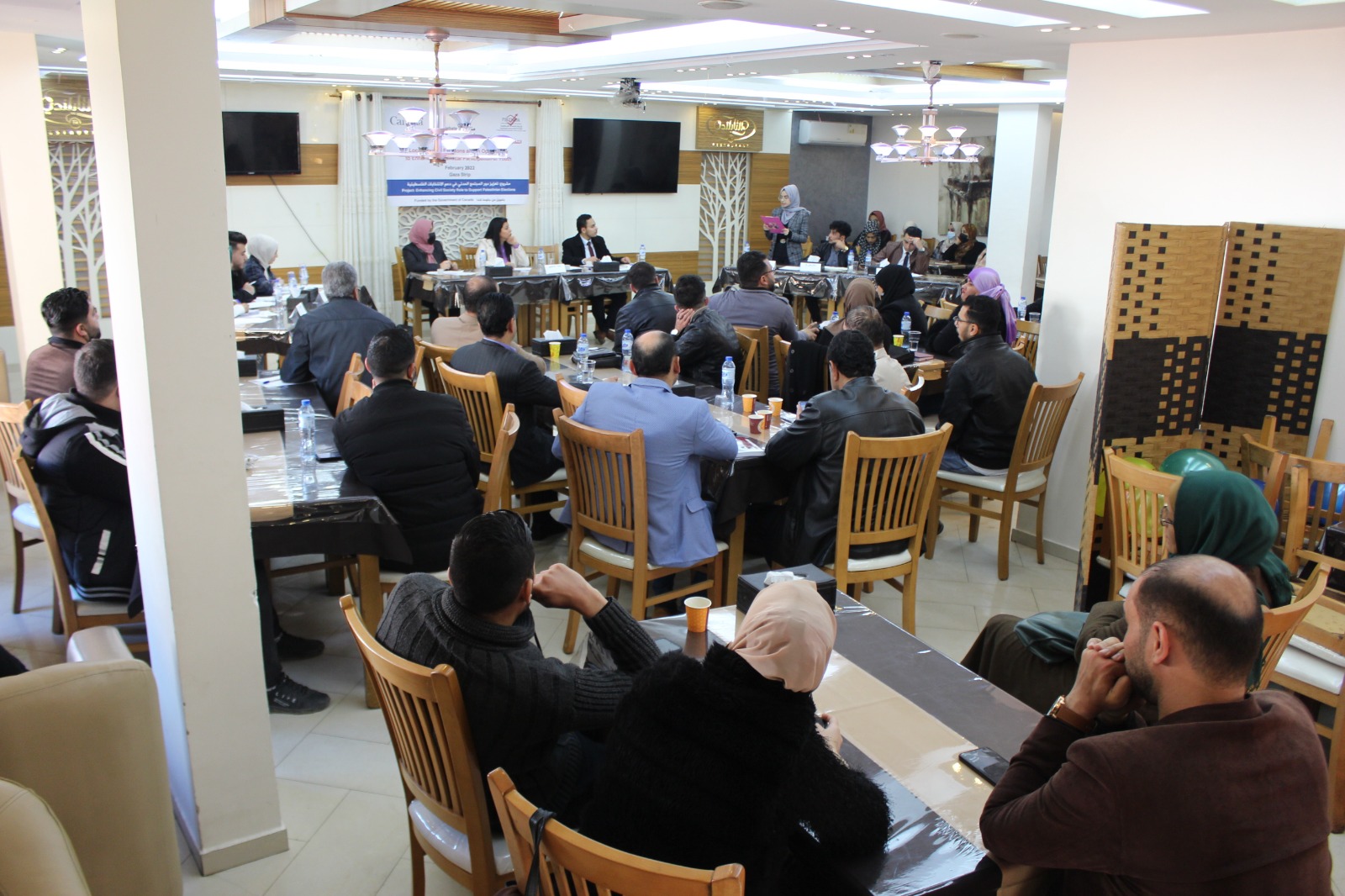
Pal-Think for Strategic Studies organized a youth debate panel entitled ” Local council elections are an opportunity to enhance the political participation of youth ” within the project “Enhancing the Civil Society Role to Support Palestinian Elections” funded by the Government of Canada.
The project aims to involve youth in developing the society and promoting the concepts of democracy to contribute to finding resolution of community and rights issues.
The discussion was opened by the project coordinator, Ms Sally El-Samak who welcomed the audience. She mentioned that the panelists have chosen the theme of the debate to be discussed given its critical importance for young people and Palestinian society. As it is also support and empower youth. She emphasized that this debate is the first experience for the participants after the intensive training they had within the project.
Ms Sally highlighted that the essence of Pal Think’s work is to provide real opportunities for youth to express their opinions in front of thinkers and researchers.
In turn, the director of Pal-Think, Mr Omar Shaban said that “Pal-Think” is an ongoing institution that works, cares and makes real partnerships with young people. And since 2007, it has helped youth come out active in society in collaboration with all Palestinian and international parties despite the limited possibilities. He noted that many of the young people that have been embraced by “Pal-Think,” has shown success in their practical life.
He added: “We are proud to work with youth, and they are our wealth and the backbone of Palestinian society.”
Speaking to the panelists, Mr Omar confirmed that the main objective of the debate is to learn the peaceful dialogue with the other dissenters’ party.
The debate was moderated by the political researcher, Dr Talal Abu Rokba, who in turn presented the model on which panelists will follow. He added: “The basis of this debate is to present a true model of youth based on rationality in its arguments. It would represent the knowledge and information provided to the audience using scientific research skills in collecting, collating and labelling information. That is what Pal Think does in promoting information analysis and inculcating critical thinking among young people. “
Dr Talal continued: “This method is essential in building future leaders and can create opportunities for young people in the near future.”
The Supporters are: Easel Safi 23, is an English language graduate, Albara’ Al-Zian 24, a journalist and Ahed Abdullah 29, a project coordinator.
The most prominent ideas they defended were:
- The presence of youth in local bodies in free, fair and democratic elections gives young people an opportunity to achieve their goals and demands and integrates them into the middle and upper levels of leadership, strengthens trust between them, citizens and decision-makers and develop the concept of their citizenship.
- Although the age of the Legislative Council’s candidacy is 28 years and 40 years for the presidential election which prevent a large segment of young people in political participation, the candidate for local bodies is 25 years and that gives young people a greater chance of political participation.
- The constant youth dialogue of mayors and local government representatives is a clear demonstration of the young people’s belief that elections to local bodies are an important opportunity to enhance their political participation and presence in decision-making positions.
The opposers are: Ameer Hassanen 20, a law student, Noor Nassar 21, a law student, the lawyer Ashraf Sokar.
They relied on several arguments:
- The lack of genuine representation of young people since the first Palestinian legislative elections in 1996 has caused young people to be reluctant from political life.
- Party leaders and senior politicians are stick to the political life and that prevent young people from the opportunity to get access to politics and their lack of conviction. That is demonstrated by the decline in youth participation in the 2017 local elections compared to 2012.
- Local election is not the real opportunity for youth political participation because they are governed by groups as there are no youth lists.
- Elections are held only in the West Bank and not in the Gaza Strip and Jerusalem.
After the debate ended, the judgement comity consisting of the media researcher Ms Hidaia Shima’on, the lawyer Fatima Ashour and the lawyer Omar Elruzi announced that the supporters had won the debate.
The judgement comity gave several recommendations to both groups: the purpose of the debate is to inculcate a culture of peaceful dialogue, the opposition is always more difficult than accepting the existing argument ideas, and the debate teaches the style of opposition and not only to embrace opposing ideas.
The audience asked the groups some questions about the fairness of elections, to what extent they are convinced about its impact on their lives and their ability to run on independent lists away from political parties.
The designations employed and the representation of material in these meetings do not imply the expression of any opinion whatsoever on the part of the Government of Canada.”

